Are you looking for a specific topic? Use the search function at the top right.
Sind Sie auf der Suche nach einem bestimmten Thema? Nutzen Sie die Suchfunktion oben rechts.
Wenn Sie unser Magazin kostenfrei abonnieren möchten, schicken Sie eine Mail mit dem Betreff FELD und Ihren Kontaktdaten an: feld@zalf.de.
Sie möchten die neuen FELD-Ausgaben lieber online nachlesen?
Dann registrieren Sie sich für den Newsletter auf unserem Online-Blog zum Magazin: www.quer-feld-ein.blog
FELD 02/2021
- Text
- Citizen science
- Research
- Drought
- Water
- Climate
- Soil
- Irrigation
- Silicon
- Agricultural
- Mosquitoes
- Methane
- Mosquito
Mückenatlas
Mückenatlas Mückenatlas During these last days of April, the mailbox of Dr. Doreen Werner is only about a third full. This is the calm before the big storm, because only a few weeks later, the biologist and entomologist will receive about 50 to 80 shipments per day. Then, the basket is almost too small for the pile of envelopes and small parcels. The shipments arrive from all over Germany containing one or more mosquitoes, placed in small boxes and containers to avoid damage during transport, as well as a filled out submission form stating the place and date of capture for each mosquito. Every day, Doreen Werner inspects and documents the submissions. Usually, one quick glance is sufficient for her to know which mosquito species she is looking at. Sometimes, however, she has to use the binocular microscope to determine the species. Occasionally, even that is not enough – in this case, only a genetic analysis can provide information about the species. NEW THINKING IN POLITICS AND SCIENCE Since 2012, Doreen Werner has been working on the Mückenatlas at the Leibniz Centre for Agricultural Landscape Research (ZALF), investigating the distribution of mosquito species in Germany with the help of thousands of submissions from contributing citizens each year. The aim is not only to conduct an inventory of mosquitoes, but – above all – to develop an early warning system for invasive (i. e. non-native) species. Mosquito eggs from other parts of the world may stick to plants or old tires, for example, and thus migrate to Germany via trade or tourism routes. In the wake of climate change, they may also establish populations here, potentially spreading further. Among them are some species which can transmit dangerous pathogens, such as the Asian tiger mosquito and the Asian bush mosquito. »It is only in recent years that this research has received the necessary attention«, says Doreen Werner. This was triggered by an outbreak of Bluetongue disease in Germany in 2006, which is particularly dangerous for cattle and is transmitted by biting midges. Until then, the disease had mainly occurred in Africa and the Mediterranean region. The outbreak led to a new The submitted mosquitoes are identified by Doreen Werner using a binocular microscope. Sometimes, however, DNA analyses are also necessary – for example, in case of specimens of closely related species. 04 05
- Seite 1 und 2: FELD MAGAZINE OF THE LEIBNIZ CENTRE
- Seite 4: TITLE STORY MOSQUITOES IN THE MAIL
- Seite 10: Mückenatlas Mückenatlas About one
- Seite 14: Silicon Silicon Normally, a researc
- Seite 18: Silicon Silicon silicate compounds
- Seite 22: TURN ON THE WATER!? 9 12 We wake up
- Seite 26: Irrigation Irrigation is more expen
- Seite 30: No time for reading? Try listening!
- Seite 34: Methane DOWN TO EARTH 13 15 »Resea
- Seite 38: www.quer-feld-ein.blog www.quer-fel
- Seite 42: Mission of the Leibniz Centre for A
Unangemessen
Laden...
Magazin per E-Mail verschicken
Laden...
Einbetten
Laden...
FELD (dt.)
Neu im querFELDein-Podcast
Would you prefer to read the new FELD issues online?
Then register for the newsletter on our online blog: www.quer-feld-ein.blog

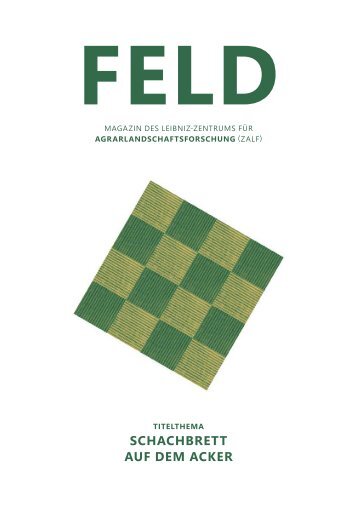
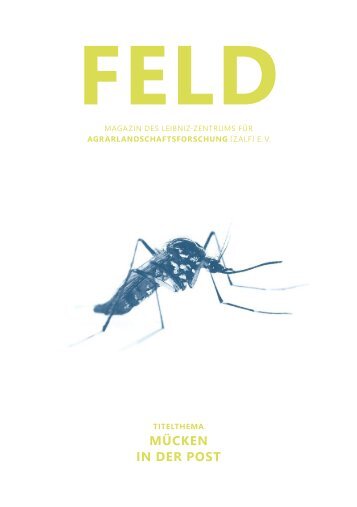
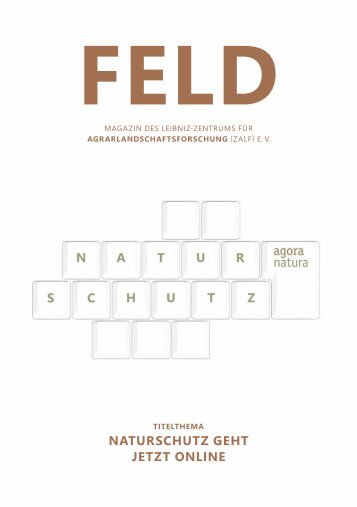
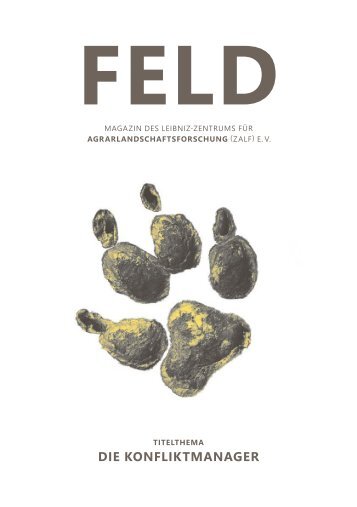
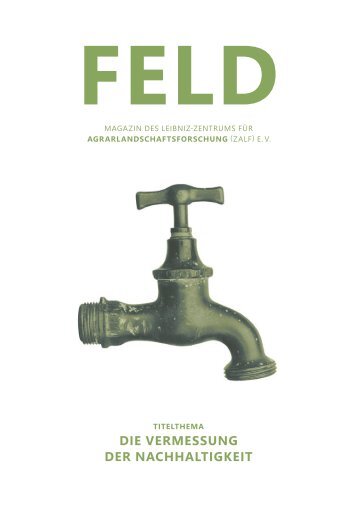
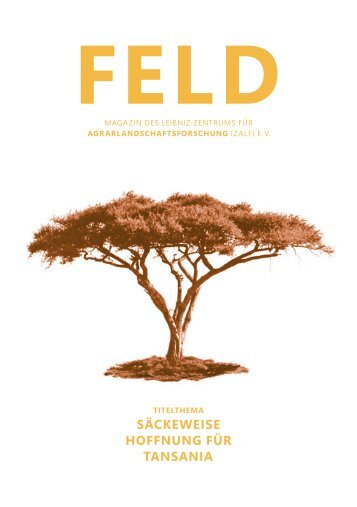
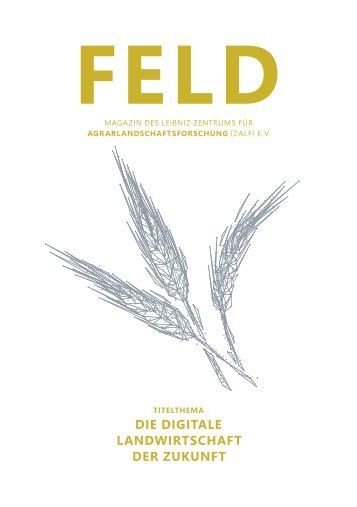
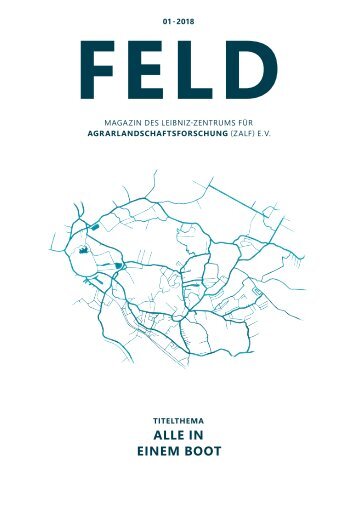
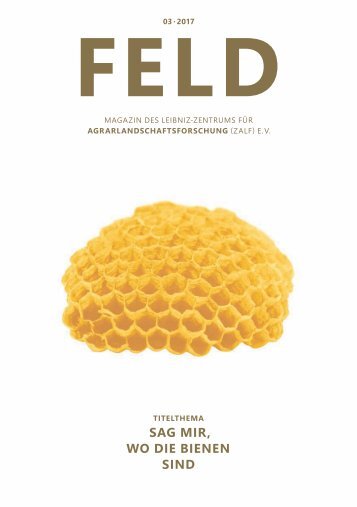
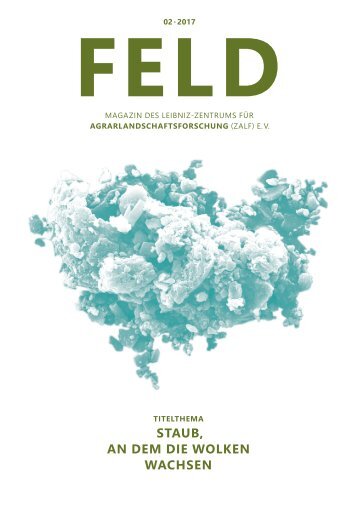

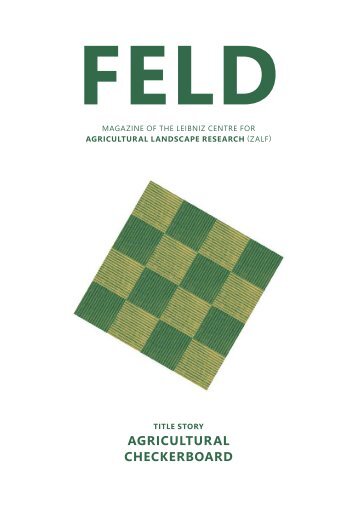

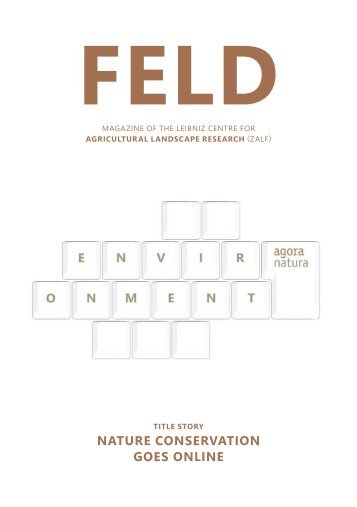








FOLLOW US
Twitter
Youtube
Instagram
LinkedIn